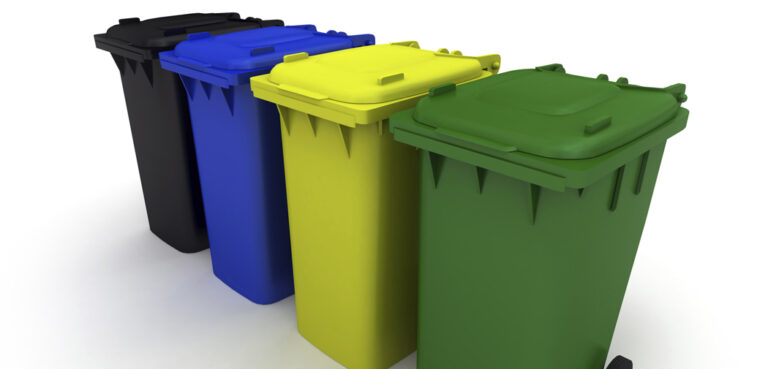Many Cities Reduce Waste With ‘Pay as You Throw’ Trash Programs
Ashland, MA residents save money, landfill space and energy

In Ashland, Mass., talking trash has paid off for the city – and the planet. Thanks to its Pay-as-You-Throw (PAYT) approach to trash collection, Ashland has saved serious money, dramatically boosted recycling and kept hundreds of tons of greenhouse gases out of the air.
Here’s how it works. Ashland’s 16,000 residents pay a nominal annual fee for solid waste disposal per residence. But beyond that, trash pickup costs are directly the result of how much trash they generate. Trash is collected in city-approved bags that come in 14-gallon and 33-gallon sizes to accommodate households’ different needs. Bags ($5.25 or $9 for a five-bag roll) are available at local stores. The more bags you buy and use, the higher your cost – a great incentive to control household waste and grow your recycling.
PAYT Aligns With City’s Environmental Efforts
“Ashland is a green community, and this fits with our culture of environmental stewardship and responsibility for the future,” says Anthony Schiavi, town manager. “We began the program in 2006, and in the last eight years, we have saved close to $1 million, reduced gas emissions equal to what 5,500 cars would produce, and saved enough energy to power 2,100 homes for that same period of time. Those are things you can’t shake your head at.
“It’s a commitment for the long-term sustainability of our planet. You have to always remind yourself that we are paying it forward for generations who have not even been born yet.”
In addition to saving money and energy, Ashland’s waste-management partner company, WasteZero, says the city’s recycling tonnage has gone up 47 percent since the pay-as-you-throw system was instituted, and its recycling rate has gone from 17 percent to 34 percent. The city provides free recycling for residents and makes it easy for them to do.
“If you can make it easy for folks to do, keep it simple, they will recycle,” Schiavi says. “We do single-stream recycling, so people don’t have to sort their recycling and can just put it all in one bag.”
PAYT Grows Around the Country
While the idea may seem novel, proponents point out that this is a utility service like water and electricity, which people pay for based on usage. PAYT systems, which can be based on variable rates for different-size trash containers, or which allow residents to tag their own bags with special stickers, have made big inroads around the country in recent years.
Thousands of communities, from Marietta, Ga. to Bloomington, Ill. to Pasadena, Calif. are successfully using PAYT systems, including 30 percent of the nation’s largest cities. Still, PAYT is not always an easy sell. Charlotte, N.C. is looking at adopting it, among other solid-waste options, but finding it a complex issue.
“People with bigger families can’t stand it,” says Victoria O. Johnson, director of the city’s solid waste management department. “It depends on where you are. When you talk about having people buy garbage bags that are $1 or $1.50 each, that can really eat into a person’s budget. We’re trying to be sensitive about that.”
